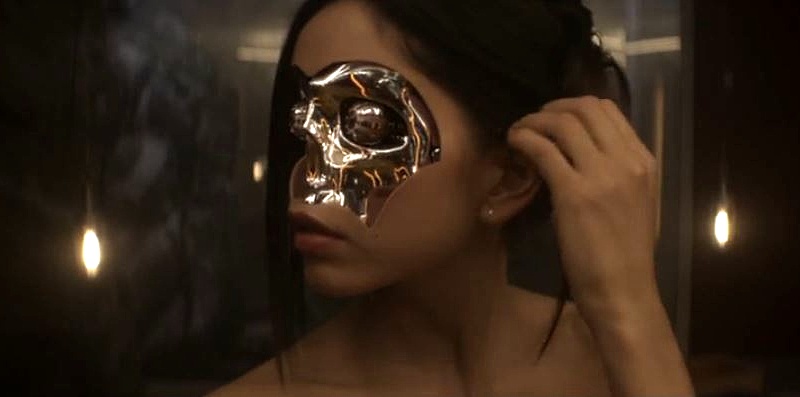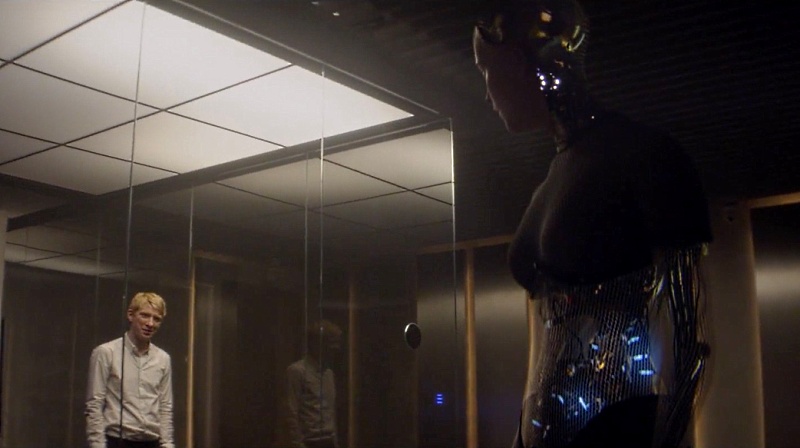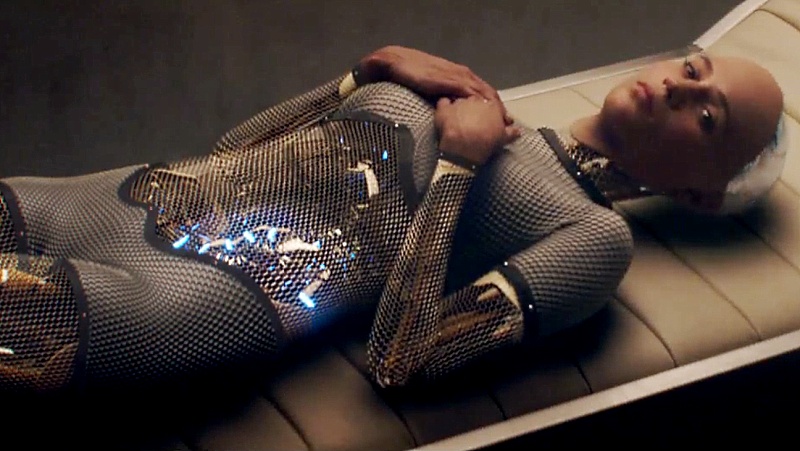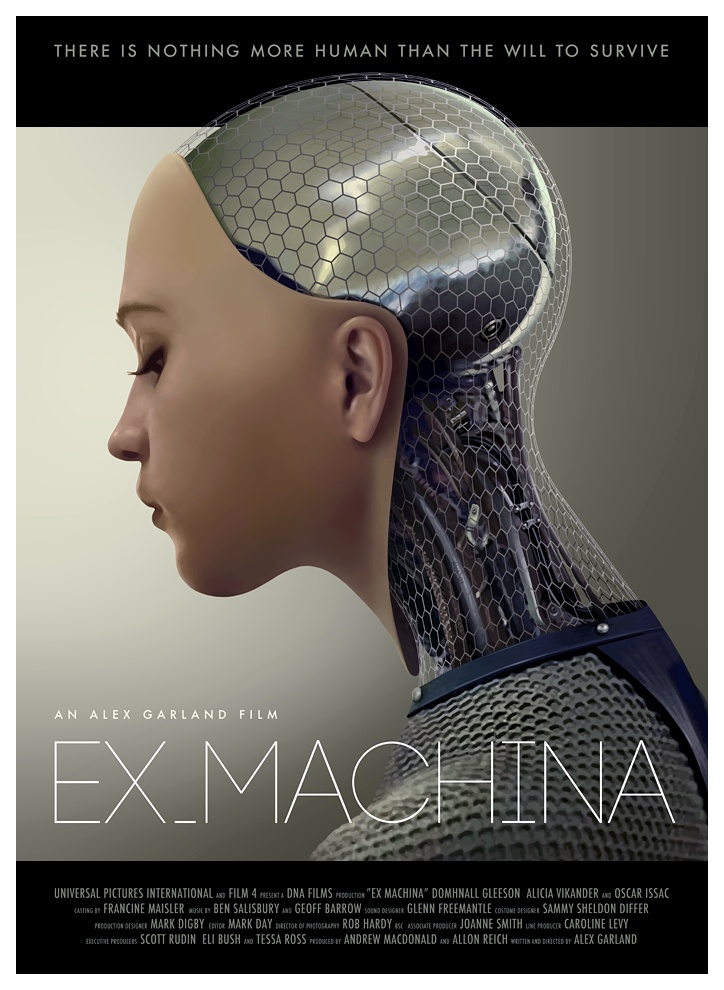Screen Anarchists On: EX MACHINA

(What is on display here: intelligence, artificial intelligence, or just artifice?)
Last week Ex Machina got a wide release in the United States. The previous two weeks it had been in a hugely successful limited release already, scoring the highest per-screen average of 2015 so far (its box office equaled over 80,000 dollar for each screen in its first week).
A bit earlier, it also won the audience award at the Imagine Film Festival Amsterdam. Combined with an IMDb-rating of 8.1, and a Rotten Tomatoes score of 90% fresh, it's an understatement to say that Alex Garland's first film as a director is doing fine for itself!
Still, it's interesting to see just how different people's opinions are on Ex Machina. Some praise its science but hate the story, others love it as a thriller but say the science is crap. It's been called smart science fiction, dumb science fiction, feminist, misogynous, and I've even heard someone calling it a robotic rape/revenge film. Wow.
In her review, Shelagh Rowan-Legg stated she liked parts of the film, but was left with a feeling of disappointment. Some here at ScreenAnarchy agree with her, others think it is brilliant.
So we had a quick round-up of opinions about the film, and decided to put them here for all to see, in a gallery. There are some minor spoilers ahead, but we all steered clear of any big ones.
The first one up is Shelagh again, adding a few words to her review, but click through them all to see our general reception of the film.
Shelagh Rowan-Legg, , Jim Tudor, Andrew Mack, Michele "Izzy" Galgana, , Brian Clark and Kurt Halfyard
contributed to this story.











Do you feel this content is inappropriate or infringes upon your rights? Click here to report it, or see our DMCA policy.
















